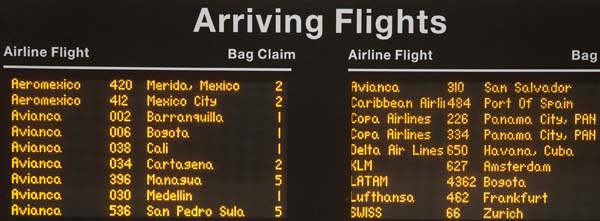Like this article?
Go on, give it a kudu!

Published on July 30 2024
Written by:
yourafricansafari.com
3525 views
Travel insurance provides coverage for certain costs and losses associated with travelling.
Travel protection is a more limited form of coverage than travel insurance.
It is important to understand your policy and the exclusions before you purchase.
Imagine embarking on your dream vacation exploring exotic African wildlife, climbing Kilimanjaro or simply basking on sandy white beaches. Now picture unexpected disruptions threatening to derail your plans such as sudden medical emergencies, natural disasters, flight cancellations, damaged luggage or loss of belongings. This is where travel insurance steps in as your ultimate safeguard, offering peace of mind and protection against unforeseen circumstances. Whether you are a globe-trotting adventurer or a leisure seeker, understanding the essential of travel insurance ensures that every journey remains as smooth and worry-free as the dream safari itself.

Travel insurance provides coverage for certain costs and losses associated with travelling. If something unexpected happen like travel delays, lost luggage, medical expenses or trip cancellations, you could be responsible for some of those costs yourself. These unexpected expenses can be expensive. Travel insurance can give you greater peace of mind, knowing your travel investments is covered. Many travel insurance plans come with a core selection of coverage including trip cancellation, interruption, lost luggage and medical expenses. You can always add optional coverage unique to your travel situations e.g. damage coverage, extreme adventures, sports equipment pets and more. It is very important to consider the type of trip you are planning when deciding what to include in your travel insurance plan.
Travel protection and travel insurance are sometimes used interchangeably, but these two products are quite different and work best when they complement one another. Understanding the difference between the two products is essential to ensure you have the right coverage for your trip.
Travel insurance is designed to protect you and your trip from unexpected costs and losses depending on the plan you choose. The coverage can be very comprehensive and includes travel cancellation, interruptions, medical expenses, lost luggage, damage items and theft. It’s usually more expensive than travel protection as it provides more coverage and typically costs 4 – 8 % of the total trip cost.

Travel protection is a more limited form of coverage than travel insurance, focusing on trip cancellation and interruption. If you are unable to take a trip due to an unforeseeable event such as illness, family emergencies, natural disasters or airline strikes, a travel cancellation policy will reimburse you for your prepaid, forfeited and non-refundable costs. Travel protection insurance is often sold as an optional coverage to a base travel insurance policy, but some travel insurance companies sell travel protection as a standalone policy.

Travel protection insurance only protects the customer in case they need to cancel due to unforeseen circumstances, such as illness or family emergencies. It’s ideal if you are planning a short domestic vacation and seek affordable and convenient coverage. With lower risk and financial investment in such a trip, comprehensive insurance may not be necessary. If your airline, tour operator or accommodation provider goes out of business, effectively cancelling your trip, the insurer will reimburse you for non-refundable expenses.
A popular policy of travel protection is CFAR—cancel for any reason. This lets you cancel your trip for any reason, even if you have been planning it for a long time. If you have need to cancel, you will get 100% of your money back. When you purchase CFAR, you must insure 100% of your prepaid nonrefundable trip costs. There are eligibility requirements, so not all travelers will qualify. If all conditions are met, most policies will reimburse you for 50% to 75% of your trip costs, unless otherwise specified.
Some practical examples of what CFAR could cover include some of the following:
Loss of belongings is a travel insurance policy where if your belongings are lost or stolen while you are travelling, a loss of baggage coverage can help you replace your things. This coverage is often included as part of a comprehensive travel insurance policy.
![]()
If you need to replace your items immediately, you can also purchase travel insurance that provides an advance payment for your lost items. In the event that your flight is delayed and you miss your connecting flight, missed connection coverage can help you reimbursed. This coverage is typically included with the loss of baggage coverage.
No one plans to fall ill or get injured while travelling, but unfortunately such situations can arise unexpectedly. Healthcare systems and costs vary widely across different countries and medical treatment abroad can be exorbitant. International travel insurance typically covers medical expenses, including hospitalization, doctors’ fees, medication and emergency medical evacuation, if required. This coverage provides peace of mind, allowing you to focus on your recovery and not your reoccurring expenses.

Trip cancellations and interruptions help even the best laid travel plans which can be derailed by unforeseen events such as family emergencies, natural disasters or airline strikes. These disruptions can lead to cancelled flights, missed connections or shortened trips. With travel insurance, you can recoup non-refundable expenses like flight tickets, accommodation bookings and tour reservations. This financial safety net ensures that your hard-earned money is not wasted due to circumstances beyond your control.
To navigate unfamiliar territory can be challenging, especially if you face language barriers or are unsure of local customs. Many international travel insurance policies offer 24/7 assistance services that can help you with emergency cash transfers, translation services, legal aid and guidance in case of unforeseen situations. Having access to reliable support network can be invaluable when you are far from home.

All insurances have inclusions and exclusions. It is important to understand your policy and the exclusions before you purchase. Read over the policy of insurance, which contains the full terms and conditions, and ask any questions you have before purchasing. According to the Generali Travel Insurance, most insurance companies enforce some limitations and exclusions such as reasonably foreseeable events, travel restrictions by government authorities, pre-existing conditions and high risk activities.
Whether you are embarking on a leisurely vacation or a business trip, having the right insurance coverage can make all the difference in turning a potential disaster into a manageable inconvenience. Remember, it’s not just an extra expense, it’s an investment in your safety and well-being.
Here are some of the companies we recommend you check for the best solutions on travel insurance and cancellation. Depending on your nationality and specific circumstances, better solutions might be available for you.
Safari by Leo
Shadows of Africa
Forbes
Travelguard
Business Insider
Go World Travel
Progressive
Has been on: 15 safaris
Your African Safari (YAS) is a safari-planning resource for anyone planning an African safari. It features information on over 2600 tour operators including company and vehicle descriptions, user reviews, safari itineraries and photos. It also features detailed information on 14 countries and 84 parks and game reserves.
© Your African Safari Ltd, All rights reserved.
Said on 11 September 2024 06:52

On regards to Travel Insurance there is an important update for those planning to visit Zanzibar from the 1st October 2024.The Zanzibar government has introduce a mandatory Travel Insurance that affect all foreign visitor to the island and it is designed to provide protection for up to 92 days for a cost of 44 USD per person and it is provided only by the Zanzibar Insurance Corporation
Your African Safari is a safari-planning and safari review site. It was created to help support a healthy African wildlife population. All reviews are vetted before being approved and only ethical tours are published